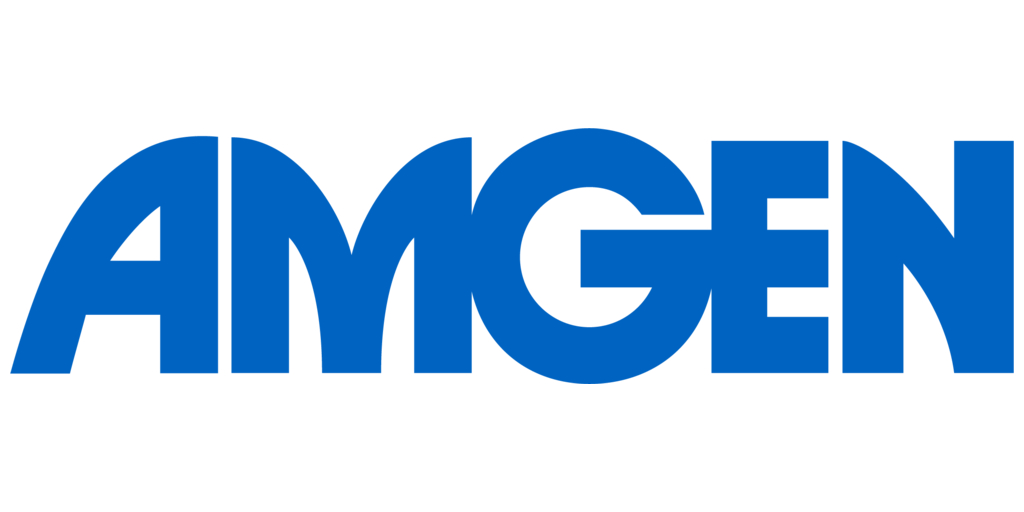- IMDYLLTRA® is indicated for the treatment of adult patients with extensive-stage small cell lung cancer (ES-SCLC) with disease progression on or after at least two prior lines of therapy, including platinum-based chemotherapy1
- Lung cancer is the third most common cancer in the UK, with more than 49,000 cases diagnosed in the UK between 2017 and 20192
- Small cell lung cancer (SCLC) accounts for approximately 15% of all lung cancers3
- In the Phase 2 DeLLphi-301 study, involving 99 patients with ES-SCLC, tarlatamab demonstrated a 41% objective response rate (95% Confidence Interval [CI]: 32 to 52) for the primary end point and 9.7-month median duration of response (range: 5.9, not estimable [NE])1,4
CAMBRIDGE, England--(BUSINESS WIRE)--Today, Amgen announced that the UK’s Medicines and Healthcare products Regulatory Agency (MHRA) has granted a conditional marketing authorisation to IMDYLLTRA® for the treatment of adult patients with extensive-stage small cell lung cancer (ES-SCLC) with disease progression on or after at least two prior lines of therapy, including platinum-based chemotherapy.1


Small cell lung cancer (SCLC) is an aggressive lung cancer subtype that accounts for approximately 15% of lung cancers.3 ES-SCLC is characterised by rapid tumour growth and metastatic spread.5 Patients with SCLC are often diagnosed after the cancer has reached an advanced stage because symptoms do not typically appear early in the disease.6
“The MHRA’s granting of a conditional marketing authorisation for tarlatamab is a significant step forward for people living with small cell lung cancer. More than 34,000 people die from lung cancer in the UK each year.2 There is a vital need for novel treatments, particularly for the extensive stage of small cell lung cancer, where outcomes are especially poor,” said Tony Patrikios, Executive Medical Director, Amgen UK & Ireland. “This licence brings us one step closer to offering a new treatment option to eligible patients.”
The conditional marketing authorisation is based on results from the Phase 2 open label, multicentre study DeLLphi-301, which evaluated tarlatamab in patients with ES-SCLC who had failed two or more prior lines of treatment.4 Results from the study found that tarlatamab at the 10 mg every two weeks (Q2W) dose (N=99) demonstrated an objective response rate (ORR) of 41% (95% Confidence Interval [CI]: 32 to 52) and a median duration of response (DoR) of 9.7 months (range: 5.9, not estimable [NE]).1
“Extensive-stage small cell lung cancer is an extremely difficult cancer to treat. While initial response rates to current treatment of chemotherapy, with the addition of radio- and immunotherapy, are high, duration of response is often short. Subsequent current treatments have had low success rates,” said Alastair Greystoke, MBChB, MSc, PhD, FRCP, Professor of Precision Oncology and Honorary Consultant Medical Oncologist, Newcastle University & Newcastle upon Tyne Hospitals NHS Foundation Trust, Newcastle, UK.
IMDYLLTRA (tarlatamab) is a bispecific DLL3-directed CD3 T-cell engager that binds to DLL3 expressed on the surface of tumour cells and CD3 expressed on the surface of T cells. The bispecific binding of tarlatamab to T cells and DLL3-positive tumour cells triggers T-cell activation, production of inflammatory cytokines, release of cytotoxic proteins, which results in redirected lysis of tumour cells.1
The most common side effects reported with tarlatamab were cytokine release syndrome (53.8%), pyrexia (36.9%), dysgeusia (30.0%), decreased appetite (29.4%), constipation (27.5%), fatigue (26.9%), anaemia (25.0%) and asthenia (21.9%). Other very common side effects include nausea, hyponatraemia and dyspnoea.1
IMDYLLTRA® has been granted a conditional marketing authorisation by the MHRA. This means that further evidence on this medicinal product is awaited.
▼ This medicinal product is subject to additional monitoring. This will allow quick identification of new safety information. Healthcare professionals are asked to report any suspected adverse reactions.
NOTES TO EDITORS
About Small Cell Lung Cancer
SCLC is one of the most aggressive and devastating solid tumour malignancies, accounting for ~15% of the 49,000 patients diagnosed with lung cancer in the UK each year.2,3,10 ES-SCLC has a median survival of approximately 9–12 months and less than a 2% 5-year relative survival rate.11 Despite patients being initially sensitive to first-line platinum-based chemotherapy, most patients relapse within months and require subsequent treatment options.12 Current second-line treatments have shown limited survival (median overall survival: 25.9 weeks),11 while there are very limited options available for third-line treatment.7
About IMDYLLTRA®
IMDYLLTRA (tarlatamab) is a bispecific DLL3-directed CD3 T-cell engager that binds to DLL3 expressed on the surface of tumour cells and CD3 expressed on the surface of T cells. The bispecific binding of tarlatamab to T cells and DLL3-positive tumour cells triggers T-cell activation, production of inflammatory cytokines, release of cytotoxic proteins, which results in redirected lysis of tumour cells.1
For further product information, please see the Summary of Product Characteristics, which will be available at: https://www.medicines.org.uk/emc/product/15878
Indications
In the UK, IMDYLLTRA® is indicated for the treatment of adult patients with ES- SCLC with disease progression on or after at least two prior lines of therapy, including platinum-based chemotherapy.1
About Amgen UK
Amgen’s mission is to serve patients. A biotechnology innovator since 1980, our science- based heritage is at the heart of everything we do. We remain on the cutting edge of innovation, using technology and human genetic data to push beyond what is known today. In the UK, Amgen is advancing a broad and deep pipeline that builds on its existing portfolio of medicines to treat cancer, heart disease, osteoporosis, inflammatory diseases and rare diseases. As a regional hub, we employ around 650 people in the UK and Ireland across our commercial, R&D and corporate functions. Committed to driving sustainable solutions that can adapt to an ever-evolving health system, we are proud to serve patients every day.
For more information visit https://www.amgen.co.uk/
References
- IMDYLLTRA® (tarlatamab) Summary of Product Characteristics. Will be available at: https://www.medicines.org.uk/emc/product/15878.
- Cancer Research UK. Lung cancer statistics. Available at: https://www.cancerresearchuk.org/health-professional/cancer-statistics/statistics-by-cancer-type/lung-cancer. Last accessed: January 2025.
- Macmillan Cancer Support. Small cell lung cancer (SCLC). Available at: https://www.macmillan.org.uk/cancer-information-and-support/lung-cancer/small-cell-lung-cancer. Last accessed: January 2025.
- Ahn MJ, et al. Tarlatamab for Patients with Previously Treated Small-Cell Lung Cancer. N Engl J. 2023;389(22):2063–2075.
- Cancer Research UK. Limited and extensive stage (small cell lung cancer). Available at: https://www.cancerresearchuk.org/about-cancer/lung-cancer/stages-types-grades/limited-extensive. Last accessed: January 2025.
- National Health Service. Lung Cancer Overview. Available at: https://www.nhs.uk/conditions/lung-cancer/. Last accessed: January 2025.
- Paz-Ares L, et al. Tarlatamab, a First-in-Class DLL3-Targeted Bispecific T-Cell Engager, in Recurrent Small-Cell Lung Cancer: An Open-Label, Phase I Study. J Clin Oncol. 2023;41(16):2893–2903.
- Ramalingam SS, et al. Poster TPS8603. J Clin Oncol. 2022;40(16).
- Amgen. FDA APPROVES IMDELLTRA™ (TARLATAMAB-DLLE), THE FIRST AND ONLY T-CELL ENGAGER THERAPY FOR THE TREATMENT OF EXTENSIVE-STAGE SMALL CELL LUNG CANCER. Available at: https://www.amgen.com/newsroom/press-releases/2024/05/fda-approves-imdelltra-tarlatamabdlle-the-first-and-only-tcell-engager-therapy-for-the-treatment-of-extensivestage-small-cell-lung-cancer. Last accessed: January 2025.
- Zhang X, et al. CAR-T Cell Therapy in Hematological Malignancies: Current Opportunities and Challenges. Front Immunol. 2022;13:927153.
- National Institute for Health and Care Excellence. Topotecan for the treatment of relapsed small-cell lung cancer TA184. Available at: https://www.nice.org.uk/guidance/ta184/. Last accessed: January 2025.
- Dingemans AMC, et al. Small-cell lung cancer: ESMO Clinical Practice Guidelines for diagnosis, treatment and follow-up. Ann Oncol. 2021;32(7):839–853.
- Rojo F, et al. International real-world study of DLL3 expression in patients with small cell lung cancer. Lung Cancer. 2020;147:237–243.
Contacts
Sejal Sachdev, Amgen UK Corporate Affairs
ssachd01@amgen.com




